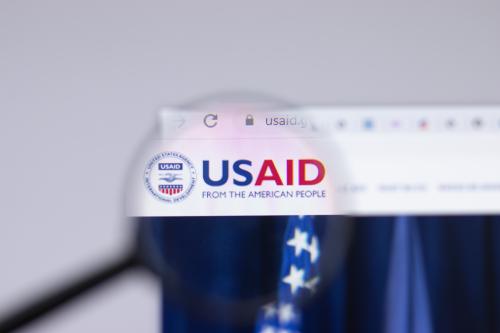Ethiopia to vote in new prime minister, though political protests and arrests persist
On Tuesday, the ruling Ethiopian People’s Revolutionary Democratic Front voted Dr. Abiy Ahmed the new chairman of the four-party coalition, replacing Prime Minister Hailemariam Desalegn after his February resignation. Abiy, the 42-year-old leader of the Oromo People’s Democratic Organization and former lieutenant general, will officially be sworn in as prime minister on April 2.
The elevation of Abiy, who is largely viewed as a reformer, was greeted positively by many. Hopes are high that Abiy’s election will bring calm to increasing unrest across the country. He will be the first head of state in modern times from Ethiopia’s largest ethnic group, the Oromo, whose region has experienced major strikes, protests, and violence in recent years. According to Bloomberg, following the ruling party’s selection of Abiy, yields on the country’s eurobonds due 2024 fell markedly by 22 basis points to 6.31 percent, suggesting an increase in the bond’s value and a surge in investor demand for the asset compared to the previous week.
So far this year, Ethiopia has seen both progress and retreat in the protection of human and political rights. In January, in response to the unrest in the Oromia and Amhara regions, the government released 114 political prisoners as well as senior opposition leader Merera Gudina. Charges against another 414 people were also dropped. These releases were done “in order to improve the national consensus and widen the democratic platform,” according to then-Prime Minister Desalegn.
Then again, Ethiopia has been under a state of emergency since Desalegn’s resignation. Since then, the country has seen an increased crackdown on journalists and protesters, with 12 people arrested on just Monday, March 26, for violating a ban against using a prohibited national flag and illegally gathering without the knowledge of authorities.
MTN’s initial public offering is the largest ever in Ghana; Central Bank cuts rates
The upcoming initial public offering (IPO) of the Ghanaian unit of telecom service provider MTN is expected to become the largest listing on the Ghana Stock Exchange. According to Bloomberg, the company will be selling a 35 percent stake through the listing for about $787 million at an overall valuation of $2.2 billion. The listing is part of the firm’s 2015 agreement with the government signed when MTN won the right to use 4G spectrum to launch high-speed mobile data services in the country. The size of the IPO is 10 times the size of the previous largest IPO of the Agriculture Development Bank in December 2016. The IPO is expected to garner global interest and, according to Alex Boahen of Databank Group, “demand from foreign investors attracted by MTN’s profitability should ensure the IPO is a success.”
In other business news, the Bank of Ghana cut its policy rate from 20 to 18 percent this week. This represents a four-year low for the policy rate, which has been reduced by 8 percentage points since 2016 in line with the falling inflation, which has almost halved over the last two years to 10.6 percent in February. Current inflation levels are close to the central bank’s medium term target of 6-10 percent and could lead to further policy rate cuts according to an analyst interviewed by Bloomberg.
Angolan prosecutors accuse former president’s son of fraud
On Monday, the U.K.’s National Crime Agency stated that it had seized $500 million—transferred from the Angolan Central Bank to a corporate account at HSBC in the U.K.—on suspicions of fraud. Deputy Attorney General of Angola Luis Benza Zanga formally accused José Filomeno dos Santos, the son of Angola’s ex-president José Eduardo dos Santos and former head of Angola’s sovereign wealth fund, of involvement in the illegal transfer. The former central bank governor of Angola, Valter Filipe da Silva, has also been implicated. HSBC had frozen the U.K. account several weeks ago and reported the transaction to U.K. authorities due to the size and nature of the transfer. Although HSBC has come under fire in recent years for allegedly managing transactions for Mexican drug cartels, the company has invested heavily in upgrading its anti-money laundering compliance systems. The U.K. authorities announced that the $500 million would be returned to Angola through a process in the U.K. courts.
Notably, Filomino is not the only member of the dos Santos family who has come under investigation in recent months. Late last year, Filomino’s half-sister Isabel dos Santos was dismissed from her position as head of Sonangol, the state oil company, and this month authorities opened an inquiry into funds that went missing during her time leading the firm.
The Brookings Institution is committed to quality, independence, and impact.
We are supported by a diverse array of funders. In line with our values and policies, each Brookings publication represents the sole views of its author(s).








Commentary
Africa in the news: Ethiopia’s new PM, Ghana’s record IPO, and Angola and UK uncover fraud
March 30, 2018